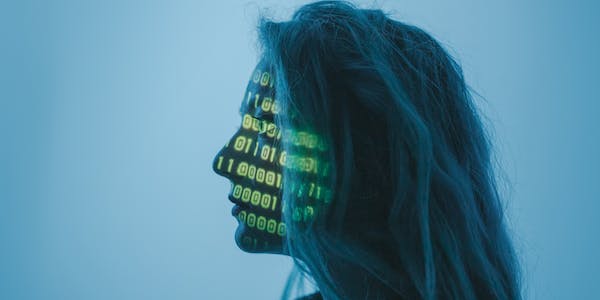Artificial Intelligence and Psychoanalysis

Hello, technology and psychology enthusiasts! Today, let’s talk about a fascinating and somewhat humorous topic: the relationship between Artificial Intelligence (AI) and Psychoanalysis. After all, are robots ready to lie on the couch and take on the role of therapists? Let’s explore this question together!
The AI and Human Communication
Firstly, we must admit that AI has made significant advances in the field of communication. There are already chatbots and virtual assistants that simulate human communication impressively. However, even though these programs can provide basic emotional support or general information about mental health, they are far from replicating the complexity of human interactions in psychoanalysis.
It turns out that Artificial Intelligence is incredible for tasks involving calculations and data analysis but falls short when it comes to understanding human subjectivity. Psychoanalysis, on the other hand, focuses precisely on subjective experiences and the understanding of individual emotions and mental processes.
AI and Social Interaction
Although AI can simulate understanding and emotional responses to some extent, it lacks a true subjective experience. The therapeutic relationship in psychoanalysis is based on interpersonal interaction, which is fundamentally human and relies on empathy and mutual understanding.
Therefore, even though AI may have some practical applications in the field of mental health, it’s important to keep in mind that the psychoanalytic therapeutic experience is profoundly based on human connection and the process of individual understanding. AI can be a valuable aid, but it does not replace the presence and work of a human therapist.
AI and Data Analysis
Artificial Intelligence can be useful in analyzing large datasets, including clinical records and psychological studies. This can contribute to research in psychoanalysis, enabling the identification of patterns and trends that may not be easily perceptible to the human eye.
However, it’s important to highlight that psychoanalysis is an approach that values the uniqueness of each case and individual understanding. AI, on its own, does not replace clinical expertise and human interpretation.
AI and Ethics
The introduction of Artificial Intelligence into the practice of psychoanalysis brings with it several important ethical and philosophical questions to be considered. Some of these include:
The Therapeutic Relationship
Psychoanalysis emphasizes the importance of the therapeutic relationship between the therapist and the patient. The introduction of AI as a substitute for the human therapist may impact this relationship, as interaction with AI would be based on pre-defined algorithms and programming. This raises questions about the authentic and genuine nature of the therapeutic relationship in the presence of AI.
Privacy and Security
The use of AI in psychoanalysis involves the collection and processing of sensitive personal data from patients. Privacy and data security issues need to be carefully addressed to ensure the confidentiality and proper protection of patients’ personal information.
Responsibility and Accountability
In a therapeutic interaction with AI, who would be responsible and held accountable in case of failures or negative consequences? Ethical and legal responsibility needs to be clearly defined, considering that AI does not possess consciousness or moral intention like a human being.
Empathy and Intuition
Empathy and intuition are essential skills for a psychoanalytic therapist. While AI can be programmed to simulate empathy, it lacks life experience and subjective understanding like a human therapist. This may limit its ability to understand and respond appropriately to the emotional nuances and complexities of the patient.
Neutrality and Interpretation
Interpretation is a fundamental part of psychoanalytic practice, where the therapist interprets the thoughts and feelings of the patient. However, interpretation is a highly subjective activity based on the individual therapist’s perspective. The introduction of AI in interpretation raises questions about the objectivity and neutrality of interpretations, as well as the risk of oversimplifying the patient’s psychic processes.
Diminishment of Autonomy
Psychoanalysis aims to empower the patient to develop greater autonomy and self-awareness. Sole reliance on AI for the therapeutic process may diminish the patient’s autonomy, as the final decision would be made by the AI, limiting the freedom of choice and self-determination of the individual.
AI and Technology
Technology can also be used to enhance the efficiency and accessibility of psychoanalysis, for example, enabling remote sessions. However, it’s important to recognize that the core of psychoanalysis is the therapeutic relationship and a deep understanding of the human mind, elements that continue to depend on the presence of a human therapist.
The combination of human knowledge and skills with technological support can be a more promising approach for the future of psychoanalysis.
The Future of the Relationship Between AI and Psychoanalysis
While Artificial Intelligence may play a complementary role in psychoanalysis, it is essential to ensure that its use is guided by strong ethical principles, with safeguards to protect the rights and well-being of patients, preserving the human and relational nature of psychoanalysis.
In this way, AI can become an ally to the human therapist, allowing both to work together in the pursuit of understanding and the well-being of patients. And let’s agree, this partnership between humans and machines is much more interesting than the idea of robotic psychoanalysts, isn’t it?
So, technology and psychology enthusiasts, rest assured! Human therapists still have a lot of work to do, and AI is here to assist, not to replace them. After all, no machine can replace the empathy, intuition, and human understanding that make psychoanalysis such a unique and valuable practice.
What are your thoughts on this relationship between AI and psychoanalysis?




